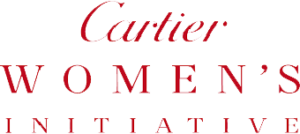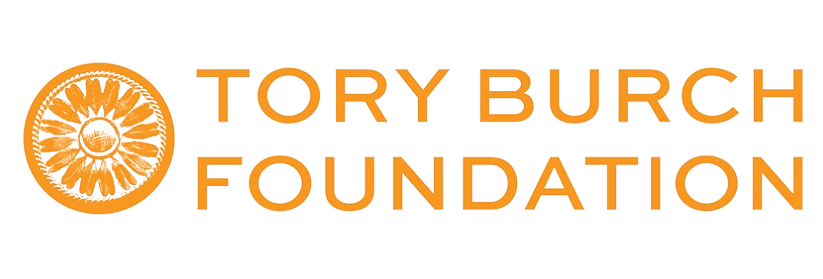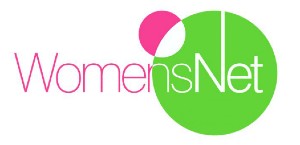The best small business grants for women offer financing opportunities for women-owned businesses to help support their business goals. They should also provide both business and educational resources, specifically for female entrepreneurs seeking funding for business development outside of getting a traditional loan.
We’ve compiled a list of the best small business grants for women applicable to a wide variety of business owners.
- Amber Grant: Best overall for women entrepreneurs
- Her Village Grant: Best for nonprofit organizations
- CCWC Women of Color Entrepreneur Grant: Best for POC
- Women Founders Network Fast Pitch Competition: Best for tech startups
- Cartier Women’s Initiative Award: Best for worldwide opportunities
- Tory Burch Foundation Fellowship Program: Best for educational grants
- NASE Grant: Best for monthly grant opportunities
Best Small Business Grants for Women at a Glance
Maximum Grant Amount | Time in Business Required | Revenue Requirement | Eligible Businesses | |
|---|---|---|---|---|
 | $25,000 | None | None | Women-owned small businesses |
$30,000 | None | None | Nonprofits that support female entrepreneurs | |
 | $2,500 | Since January 2020 | $25,000 | Women of color entrepreneurs |
 | $25,000 | None | Less than $750,000 | Women-owned businesses |
 | $100,000 | 1 year | Less than $2 million | For-profit women-owned businesses |
 | $5,000 | 1 year | $75,000 | For-profit women-owned businesses |
$4,000 | None | None | All small businesses | |
Amber Grant: Best Overall for Women Entrepreneurs
 | |
Grant Overview | |
Funding Amount |
|
Application Dates | Accepted on a rolling basis |
Number of Grants Available |
|
Selection Criteria |
|
Application Fee | $15 |
Eligibility Criteria | |
Qualifying Industries | Women-owned businesses |
Time in Business | None |
Revenue Requirements | None |
The Amber Grant awards over $30,000 every month to women entrepreneurs looking to grow their businesses. Three recipients across multiple industries are awarded $10,000 and are entered to win an annual grant of $25,000.
Eligibility requirements include that a business be women-owned and based in the U.S. or Canada. Also, the applicant should be 18 years of age or older.
Applications are accepted on a rolling basis and chosen based on the quality of the application questions. You’ll need to provide essay responses regarding business plans and aspirations, along with an explanation as to how the grant will help you achieve your goals.
Her Village Grants: Best for Nonprofit Organizations
 | |
Grant Overview | |
Funding Amount | $5,000 to $30,000 |
Application Dates | 2 application cycles per year |
Number of Grants Available | 2 |
Selection Criteria | Nonprofits that help to advance and strengthen entrepreneurial skills, resources, ecosystems, and educational opportunities for girls and women |
Application Fee | None |
Eligibility Criteria | |
Qualifying Industries | Nonprofit 501(c)(3) organizations that support female entrepreneurs |
Time in Business | None |
Revenue Requirements | None |
The Boundless Futures Foundation offers the Her Village Grant, which is available to nonprofits that promote entrepreneurial opportunities for women. Grants are available in amounts from $5,000 to $30,000 and can be used to further support the efforts of providing business resources for women.
The goal of the grant is to equip female entrepreneurs with support and funding so that their businesses have a positive impact on society. Application cycles take place twice a year, from January to March and July to September. Grant recipients are chosen based on their purpose and impact of supporting women entrepreneurs.
CCWC Women of Color Entrepreneur Grant: Best for POC
 | |
Grant Overview | |
Funding Amount | $2,500 |
Application Dates | Accepted on a rolling basis |
Number of Grants Available | 5 |
Selection Criteria |
|
Application Fee | None |
Eligibility Criteria | |
Qualifying Industries | Women of color entrepreneurs |
Time in Business | Established as of January 1, 2020 |
Revenue Requirements | $25,000 |
The Corporate Counsel Women of Color awards the CCWC Women of Color Entrepreneur Grant to five women of color entrepreneurs. The grant provides funding to support business goals and to help small businesses grow.
You’ll need to provide essay responses outlining the purpose of your business and how you plan to use the grant if chosen. If you become a grant recipient, you’ll need to provide financial statements that showcase your yearly revenue. Grant funds have no outlined restrictions and can be used for virtually any business expense.
Women Founders Network Fast Pitch Competition: Best for Tech Startups
 | |
Grant Overview | |
Funding Amount |
|
Application Dates |
|
Number of Grants Available | 3 |
Selection Criteria |
|
Application Fee | $50 |
Eligibility Criteria | |
Qualifying Industries | Women entrepreneurs |
Time in Business | None |
Revenue Requirements | Earned no more than $750,000 in funding |
The Women Founders Network offers three grants annually to women entrepreneurs based on categories of Tech and Consumer businesses. $25,000 is awarded to the first-place winners of each category, along with one $5,000 cash prize. The grant aims to support female founders and help scale their companies. Grant recipients will also receive mentorship and coaching opportunities to help achieve their business goals.
There are varying qualification requirements depending on which category you choose to apply for but, generally, the business must be women-owned, be based in the U.S., and have earned no more than $750,000 in funding. It’s also a requirement that the winners be able to attend the annual Fast Pitch live event held at UCLA in October.
Included in the application are a series of essay questions pertaining to the market need and opportunity of your business, your competitive advantage, and your business model. Winners are chosen annually based on the quality of the various essay responses.
Cartier Women’s Initiative Award: Best for Worldwide Opportunities
 | |
Grant Overview | |
Funding Amount |
*Per region |
Application Dates | Opens annually, 2024 dates closed |
Number of Grants Available | 3 |
Selection Criteria |
|
Application Fee | None |
Eligibility Criteria | |
Qualifying Industries | For-profit women-owned businesses |
Time in Business | 1 year |
Revenue Requirements | No more than $2 million in funding |
The Cartier Women’s Initiative offers annual grants to nine regions, with three prizes available in the amounts of $100,000, $60,000, and $30,000. The grants are available to eligible early-stage women-owned businesses that operate within various industries. Along with grant funds, recipients will receive mentorship and training opportunities to support their businesses further.
Qualification criteria include for-profit women-owned businesses that have been operating for at least one year and have generated less than $2 million in funding. Also, applicants should be at least 18 years of age. Applications need to include business registration and financial documents, a resume, a pitch deck describing the positive impact of your business, and a one-minute video outlining business goals.
Awards are based on positive impact on social or environmental issues, market analysis and fit, strategy and execution of your business model, team structure, and leadership character.
Tory Burch Foundation Fellowship Program: Best for Educational Grants
Grant Overview | |
Funding Amount | $5,000 |
Application Dates | Applications accepted annually |
Number of Grants Available | 50 |
Selection Criteria | Based on business plan |
Application Fee | None |
Eligibility Criteria | |
Qualifying Industries | For-profit women-owned businesses |
Time in Business | 1 year |
Revenue Requirements | $75,000 |
The Tory Burch Foundation offers educational business grants in the amount of $5,000 to 50 women entrepreneurs as part of their fellowship program. Grant funds can be put towards educational resources that will help a business succeed, such as textbooks, workshops and conferences, and executive coaching.
Eligibility requirements state that the business must be for-profit, be based in the U.S., and have generated $75,000 in income. Additionally, the applicant should be over 21 years of age. In addition to the grant, recipients will participate in a year-long fellowship program, which includes digital education resources, workshops, and networking opportunities. Fellows are chosen based on their business plans and operations.
NASE Grant: Best for Monthly Grant Opportunities
 | |
Grant Overview | |
Funding Amount | $4,000 |
Application Dates | Accepted on a rolling basis |
Number of Grants Available | Winners chosen every month |
Selection Criteria |
|
Application Fee | $12 monthly, or $120 annually (membership fee required to apply) |
Eligibility Criteria | |
Qualifying Industries | Any small business |
Time in Business | None |
Revenue Requirements | None |
The NASE grant is available to any qualifying small business and isn’t exclusive to women entrepreneurs. It offers monthly grants and provides up to $4,000, which can be used for various business expenses that promote growth.
You’ll need to be a member of NASE to be able to apply, which requires a membership that starts at $12 per month. Qualification criteria also require a business plan that demonstrates how the grant proceeds will benefit your business and impact future business goals.
This grant is available to small businesses industry-wide, and winners are chosen based on business needs, business plans, and how grant funds will be used to benefit your business.
How We Evaluated the Best Small Business Grants For Women
There are a few important factors we considered when evaluating the best small business grants for women. They include:
- Grant offerings specific to women-owned businesses
- Industry inclusivity
- Accessibility of the application process
- Additional resources provided with grant funds
- Qualifying criteria and required documentation
- Grant value and number of opportunities available
Women-owned Small Business Grant Resources
Small business owners have many resources when searching for grants they may be eligible for. Whether it be a directory that matches the qualifications of your business to a grant, educational materials, or networking opportunities, here are some options to look into if you need further assistance when applying for grants.
Organization | Resource Purpose | Resource Site |
|---|---|---|
 | Funds directory for women-owned businesses | |
 | Government resource offering training and support for women-owned small businesses | |
 | Directory for federal grants and application resources | |
 | Directory of grants and fellowship opportunities offered on a rolling basis |
IFundWomen is an excellent resource for finding various funding opportunities for women-owned businesses. It is more than just a directory, as it also offers coaching support and networking opportunities. It aims to connect financial opportunities with female entrepreneurs by means of grants, venture capitalists, crowdfunding, and working capital loans. Visit ifundwomen.com to find the best opportunity for your business.
The Small Business Administration (SBA) offers various resources for women-owned businesses, provided by the Office of Women’s Business Ownership (OWBO). These resources include business training, counseling, federal contracts, and access to credit and capital. The goal of providing these resources is to promote equal opportunities for women entrepreneurs who have faced challenges in running their businesses. Find more resources by heading to SBA.gov.
To find federal grant opportunities, Grants.gov is a useful resource that can connect small business owners with various funding sources. It acts as a directory that matches businesses with grant opportunities based on qualification criteria. It also offers educational content on how grants can help your business and tips for how to apply. Learn more by visiting Grants.gov.
The American Association of University Women (AAUW) offers both grants and other educational resources to help connect entrepreneurs with funding opportunities. It lists grants on its website on a rolling basis throughout the year, with varying eligibility requirements for a variety of businesses. Check out AAUW.org to find current opportunities available.
Pros & Cons of Small Business Grants for Women
| Pros | Cons |
|---|---|
| Provides hundreds of grants in varying amounts | Comes with tough competition to receive funds |
| Has no repayment obligations | Has varying eligibility requirements for most grants |
| Offers applications for free (or are inexpensive) | Has a lengthy application process |
How To Get a Women-owned Business Grant
Qualifications for women-owned small business grants will vary per application. However, you should consider the following steps that will help you when preparing to apply.
Step 1: Draft a Business Plan
Like applying for a small business loan, it’s a good idea to have a business plan available for any form of financing opportunity. When applying for a grant, you’ll likely need to demonstrate the products and services you provide, along with the structure and goals of your business. To supplement your application, you should draft a business plan that specifically references how grant funds can provide growth opportunities for your business.
Related resources:
Step 2: Find Grants Applicable to Your Business
There are hundreds of grants available; however, you’ll need to do some research to find grants that you’re eligible for. Oftentimes, grants are industry-specific or have other specifications that limit who can apply. You should only apply for grants in which you meet all of the requirements and have a good chance of getting.
Step 3: Prepare Documentation Requirements
When applying for grants, you will need to prove that you’re a legitimate business and have to supply various documents to ensure the validity of your application. Examples of requested documents can include a business license, articles of incorporation, financial statements, etc. Prepare to have these on hand to help streamline the application process.
Step 4: Apply for Grants
Once you’ve compiled your business plan and required documents, you can begin applying for grants. Ensure you note any application deadlines and supplemental materials required to apply.
Alternatives to Small Business Grants For Women
If you’re unable to obtain a grant and need to source funds in other ways, here are a few options to consider:
- Small business grants: Small business grants are available to a broader audience and are awarded to qualifying businesses. For our recommendations, see our rundown on the best small business grants.
- Crowdfunding: Crowdfunding is a way to source funds from a wide variety of investors through a fundraising platform. It offers various return options, and is generally a low-risk way to promote your business. See our guide on how to crowdfund a business for the step-by-step process.
- Angel funding: Angel funding is sourced by angel investors who invest seed money in the early stages of a business. For guidance, see our article on how to raise angel funding for your business.
- Venture capital: Venture capitalists provide funding in exchange for equity stakes when investing in a business. This usually includes multiple funding rounds, where venture capital is provided to support business development and provide returns.
- Startup business loans: Traditional financing can be difficult to obtain for a new small or startup business, but there are several startup business loans—such as personal loans for business, home equity loans, and SBA loans—available to help finance new or startup business ventures.
Frequently Asked Questions (FAQs)
Yes. Unless you’re applying for grants within the same organization, you can apply to multiple. In fact, the more grants you apply for, the better your chances at securing grant funding.
Each grant application will have varying requirements, but you should be prepared to answer essay questions and supply your business plan and financials as a general rule of thumb.
There is a lot of competition when applying for grants, as some markets are very saturated and grant awards are usually limited. This shouldn’t discourage you from applying, as it can be worth the effort and provide you with funds that don’t have any repayment obligations.
Bottom Line
The best women-owned business grants offer funding opportunities and resources to entrepreneurs to help support their business growth. While it can be a competitive endeavor, it’s a risk-free way to secure funds that can be used to cover business expenses. There are multiple resources available to find a grant your business may be eligible for.